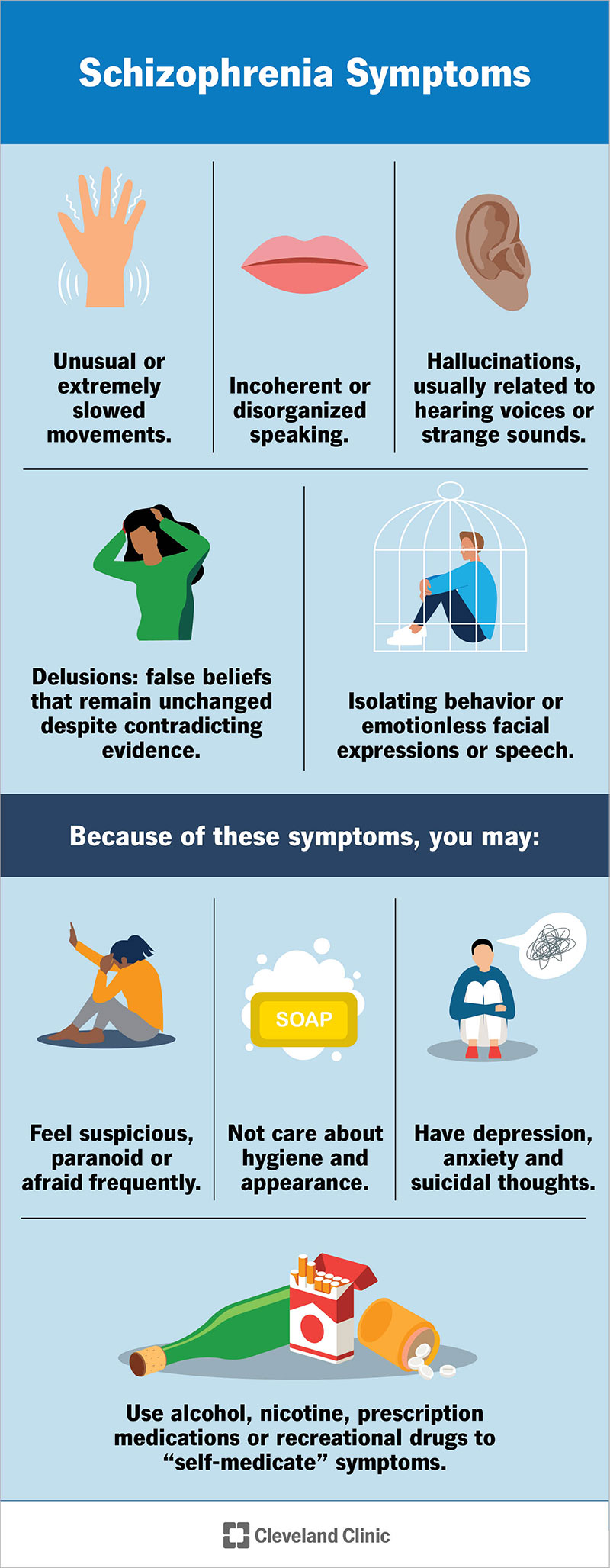Schizophrenia is a serious mental illness, and many people are afraid when they hear the word. But in fact, if we know enough about this disease and take the right treatment, many patients can recover well. In this article, we will introduce the possible causes and pathogenesis of schizophrenia in layman’s terms, as well as common treatment methods, to help you better understand this disease.
I. What are the Psychological Mechanisms of Schizophrenia?
Schizophrenia is not simply “madness” or “mental abnormality,” but a very complex psychological process.
The early psychologist Sigmund Freud believed that the main problem with schizophrenia is that the patient has diverted the emotional energy that was originally invested in other people or things to his own heart. Simply put, this means that while the person should be focused on the outside world and interacting with people, the patient gradually withdraws his or her attention from the outside world and lives only in his or her own fantasy world.
Freud also suggested that when a person is faced with a particularly severe blow or a major conflict with others, he or she may “retreat” to an earlier stage of development, which is a kind of psychological self-protection. For example, an adult who is unable to cope with the pressures of real life may withdraw like a child, escaping into his or her own world and ceasing to communicate normally.

His student Feldstein further explained that the problem with schizophrenics is that the “barrier” between their inner and outer worlds is very weak. In other words, they have a hard time distinguishing between “me” and “others,” which often makes it impossible for them to tell what’s really happening and what’s just their own fantasies.
What are the common factors that lead to schizophrenia?
Research has shown that the development of schizophrenia is related to many factors, which can be divided into two main groups:
1. Early physical and family environmental problems:
All of these conditions can affect a person’s psychological development and increase the risk of developing the disease later in life.
2. Personality traits and early manifestations of abnormalities:
Some children are noticed by their teachers or doctors during their school years that they behave a little strangely, such as being non-verbal, slow to respond, and emotionally unstable. Sometimes psychological tests can also reveal that these children have special personalities and tend to be withdrawn and self-absorbed. All of these characteristics can be early signs of schizophrenia.
To summarize:
The development of schizophrenia is usually the result of a combination of genetic inheritance, upbringing, personality traits, and life events. It is not caused by one simple reason, but is the result of the interaction of several factors.
3. Do the symptoms of schizophrenia make sense?
We often hear that people with schizophrenia experience delusions and hallucinations, such as thinking they are the “chosen one” or hearing voices that don’t exist. These symptoms may seem strange, but they make psychological sense.
For example, if a person has always felt looked down upon by others and his or her self-esteem has been hurt, he or she may begin to fantasize that he or she is very powerful or an important person in order to protect his or her fragile inner self.
Another example is that some patients feel very anxious in interpersonal relationships and fear that if they get too close to others, they will lose themselves or even be “swallowed up”. This fear makes them reluctant to interact with others and they become more and more isolated. This fear may also be present in therapy. They may be afraid to develop a relationship with the therapist for fear of being hurt if they open up.
4. What are some common treatments for schizophrenia?
Although schizophrenia is a serious illness, it is not incurable. Today’s medicine has many effective ways to help patients return to a normal life.
1. Medication.
Most people with schizophrenia need to take antipsychotic medications. These medications can help control symptoms such as delusions and hallucinations, and allow patients to regain their ability to think and make judgments. The medication must be given under a doctor’s supervision and requires regular follow-up visits to adjust the dosage.
As medication begins to take effect, patients may need to return to real-life issues, such as reintegrating into society and managing relationships. They may feel very anxious and even disoriented. Some people will feel sad because they realize that they have lost many opportunities in the past only after their condition has improved. There are also some people who cannot easily commit to work or study right away, even after their condition has stabilized.
2. Individual Psychotherapy.
There are many kinds of psychotherapy depending on the different stages and needs of patients, such as
Whatever approach is used, the key is to establish trust and security between the therapist and the patient. When the patient feels understood and safe, it is possible to discuss the real problem in depth and slowly make improvements.
3. Group Psychotherapy.
When the patient’s symptoms are under control, he or she may try to participate in group therapy. In a group, patients can share their thoughts with others, discuss their problems, and encourage each other.
Group therapy is often more effective, especially during hospitalization. By interacting with other patients, they can learn to trust others, gain emotional support, and share experiences of coping with hallucinations or delusions. This approach also reduces the shame patients may feel about their illness.
4. Family intervention.
Family members of people with schizophrenia often don’t know how to cope with their behavior and are prone to becoming emotional, accusatory, or overly intrusive. However, studies have shown that the attitudes and behaviors of family members can directly affect the patient’s recovery.
That’s why it’s important to psychoeducate family members. For example:
A good family atmosphere is key to recovery.
5. Social skills training.
Help patients improve their daily living and social skills, such as
This training can increase the patient’s self-confidence and help him or her integrate better into society.
6. Hospitalization.
People with severe schizophrenia often need to be hospitalized. In the hospital, doctors, psychotherapists, nurses, and social workers form a team to help the patient in a variety of ways.
Hospitalization includes not only medication, but also psychotherapy and life skills training. The hospital environment is a relatively safe place that provides stable support for the patient. At the same time, hospitalization also allows patients to face the reality of some “small blows,” these “blows” but help them gradually restore the ability to face reality.
Experienced therapists have shown that with long enough hospitalization and comprehensive treatment, patients can recover well and relapse can be minimized.
V. Conclusion.
Although schizophrenia sounds frightening, it is actually a treatable mental illness. As long as we provide enough understanding, support and professional help, it is possible for patients to lead normal lives again.
The key lies in
Every patient who comes out of the shadows does so with the silent support of someone behind him or her. I hope this article can help you understand schizophrenia better, and I hope more people will pay more attention to and understand mental health.

